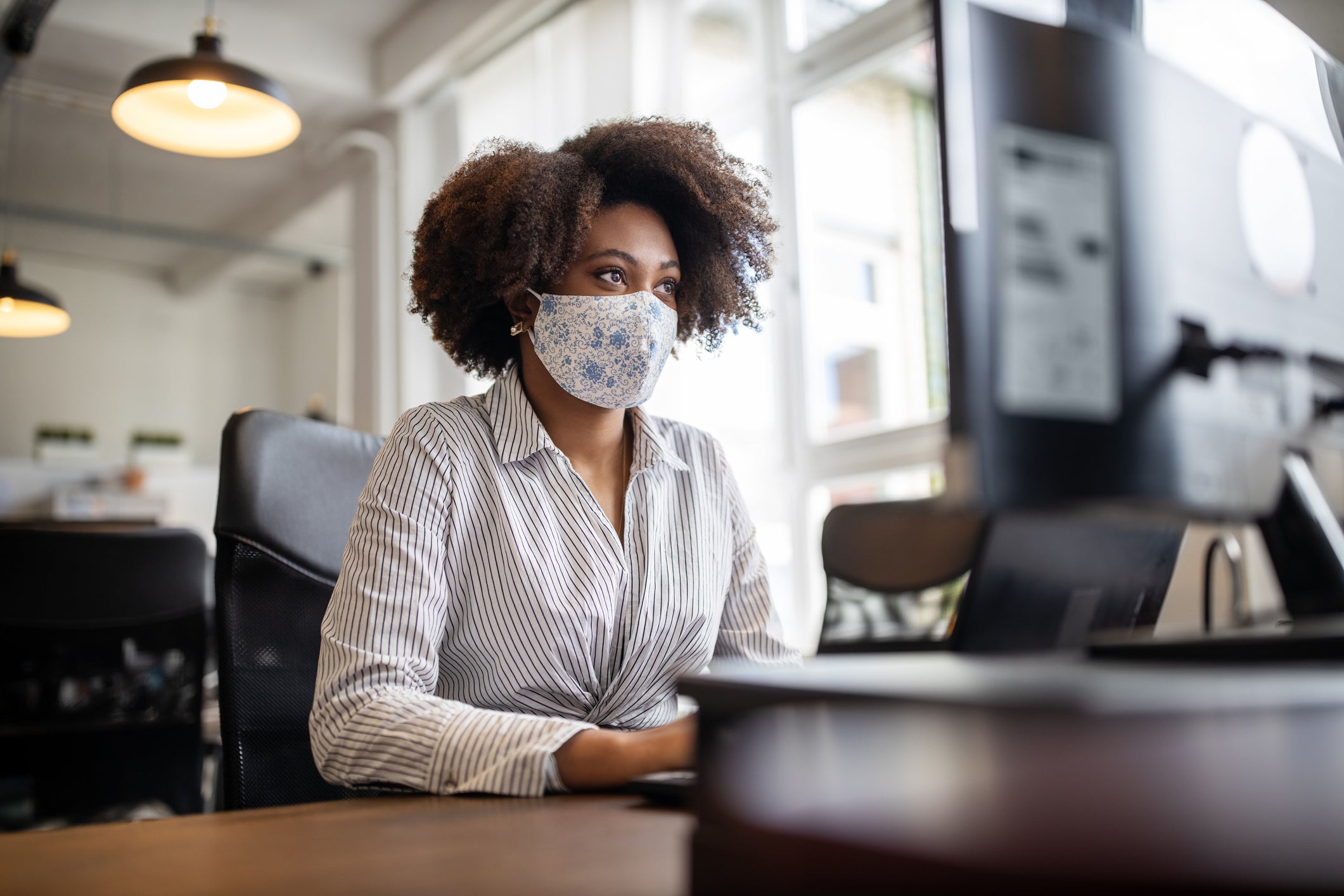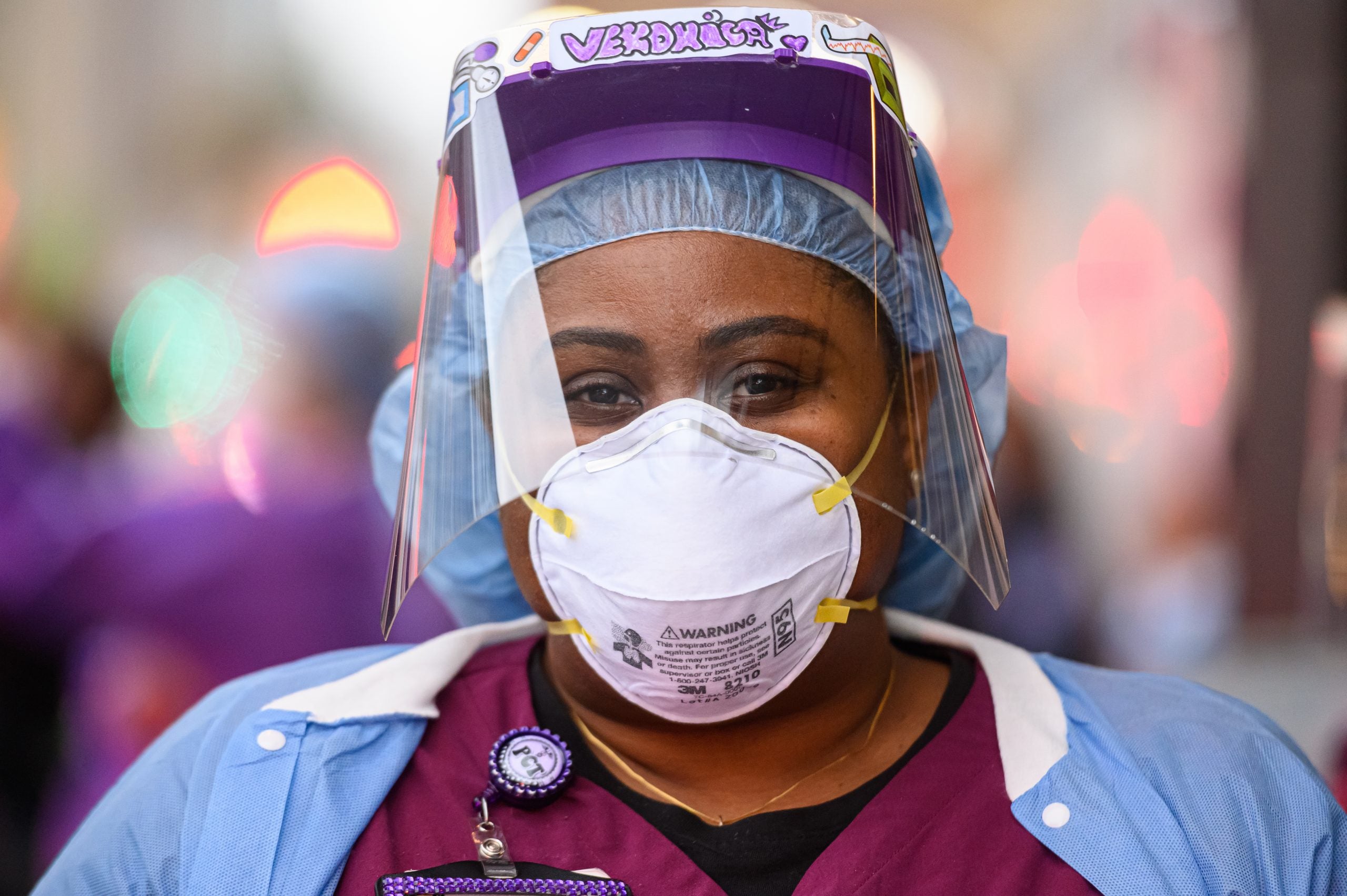
Black Women’s Equal Pay Day fell on August, 13, 2020. This means that Black women had to work an additional seven and a half months this year—in addition to the 12 months we worked last year—just to make as much as our white male counterparts did in 2019.
COVID-19 has exacerbated the unacceptable and constant issue of pay discrimination that disproportionately impacts Black women.
As many of us know by now, Black women only earn 62 cents on the dollar for every dollar earned by white men. And this wage gap adds up over a lifetime, costing Black women nearly $1 million dollars and directly contributes to the wealth gap. Even as the most educated demographic, Black women are paid less than those with less educational attainment for the same work.
As the pandemic continues to rage on, 55% of Black women reported having less than $200 in savings to help cover basic needs during the COVID crisis compared to 37% of white women and 27% of white men.
Black and Latina women have seen the largest drop in their employment-to-population ratios since February, with Black women, in particular, seeing jobs come back at a rate that is 1 ½ times slower than that of white women. Although all racial and ethnic groups have faced record unemployment, the Black-white unemployment gap has persisted through the pandemic.
With Black women often being the first fired and last hired, Black women will likely take the longest to recover from this recession.
And as if navigating the pandemic with less isn’t enough, since Black and brown communities are experiencing higher rates of COVID-19 cases, hospitalizations, and deaths, they must also bear the financial responsibility of medical and funeral costs in addition to potential loss of employer-sponsored health insurance and reduced household income due to unemployment or loss of a loved one, and thus, loss of their loved one’s income.
Unfortunately, these traumatic occurrences aren’t enough for society to thrust upon the backs of Black women. Systemic inequalities have statistically reduced the number of Black families with generational wealth, as well as those receiving equal pay for equal work. This decreases their chances of establishing the necessary safety nets to avoid financial ruin during these turbulent times.
Additionally, women of color are more likely to have been laid off or furloughed during the pandemic, stalling their careers and jeopardizing their financial security. Sadly, it won’t take involuntary termination to create setbacks and drive financial insecurity. Black women who withdraw from the workforce due to childcare or other issues may find themselves thrust back into seeking employment in a racist and sexist society, and the effects of this type of gendered racism can contribute to preterm birth, infant mortality, maternal mortality, and maternal morbidity.
With all of these factors contributing to the stress of Black women, the long term effects of this economic shift could also be considered a public health crisis on two fronts; one being the uprising of Black homelessness and the other being that of even higher rates of negative Black birth incomes.
While time is passing, Black women will be suffering the loss of property, whether that be foreclosures, evictions, or repossessions, the loss of healthcare, which during the climate of COVID-19, can be extremely detrimental to Black women and their families. All of this while trying to afford childcare to be able to work.

Because of this lack of affordability and availability of childcare, this limits the access and availability that Black women have to accept work in fields that they are many times qualified for. Forcing us to take jobs that pay far less than what we deserve, while our white counterparts are paid far more for the same job.
And as if the racist and sexist pay gap wasn’t enough, to add insult to injury, Black women have been on the front lines as essential workers and treated as expendable by companies who aren’t affording them the decency and humanity to receive critical benefits such as paid and sick leave, sometimes deemed as a “burden” on businesses, despite employees being the very backbone of the business.
Black women remain on the front lines for racial justice and electoral justice while shouldering a global pandemic. We provide essential services that bring food directly to the doorstep, next-day packages from giant warehouse distributors, food to supermarket shelves, mail to neighborhoods, medical care to loved ones, knowledge to K-12 classrooms, food to restaurant tables, and childcare and elderly care to communities.
What if the absence of these lifesaving essentials and convenience services forced those who have shielded themselves with their generational wealth from the direct health threats of the pandemic, for once, to be expendable?
Would the demands for equal pay for equal work seem so radical, then?
—
Krystina Muhammad is a mother, doula, and a communications specialist for the National Birth Equity Collaborative.
IG @KrystinaMuhammad Twitter @Krystina_M FB @KrystinaElishaMuhammad
Frankie Robertson is an activist mom, lobbyist, doula, and founder of The Amandla Group, a social justice consulting firm addressing the social and political determinants of health through policy, research, and advocacy. She serves as a technical consultant for National Birth Equity Collaborative. Follow Frankie at Twitter: @frankiebrla FB: @theamandlagroupla and IG @the_amandla_group
—
ESSENCE is committed to bringing our audience the latest facts about COVID-19 (coronavirus). Our content team is closely monitoring the developing details surrounding the virus via official sources and health care experts, including the World Health Organization (WHO), the Centers for Disease Control and Prevention (CDC) and the Occupational Safety and Health Administration (OSHA). Please continue to refresh ESSENCE’s informational hub for updates on COVID-19, as well as for tips on taking care of yourselves, your families and your communities.